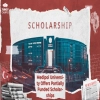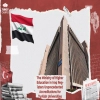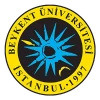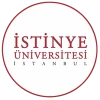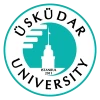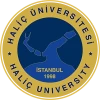Embarking on a journey of studying literature and criticism in Turkey offers a unique opportunity to delve into a rich cultural heritage and engage with a diverse literary tradition.
This article aims to provide a comprehensive overview of the advantages of pursuing literary studies in Turkey, including information on the best universities, career prospects, duration and cost of study, and the broader benefits of immersing oneself in the Turkish academic landscape.
Overview of Studying Literature and Criticism in Turkey
Studying literature and criticism in Turkey provides a captivating journey into a cultural tapestry rich in history, diversity, and literary heritage. From ancient Turkish epics to modern and postmodern works, Turkey offers a vast array of literary traditions to explore. Renowned universities offer comprehensive programs that foster critical thinking and deep engagement with literary texts.
Students gain insights into various periods, genres, and critical approaches, honing their analytical skills and expanding their cultural perspectives. With affordable tuition fees and a multicultural environment, studying literature and criticism in Turkey presents an excellent opportunity to immerse oneself in a vibrant academic atmosphere, discover the interplay of Eastern and Western influences, and embark on a rewarding journey into the world of literature.
Advantages of Studying in Turkey
Studying literature and criticism in Turkey provides students with a host of advantages, including:
- Rich Cultural Heritage
Turkey's diverse cultural heritage and historical significance offer an immersive environment for studying literature. Students can engage with centuries-old literary traditions and explore the interplay between Eastern and Western influences.
- Language Advantage
Studying in Turkey allows students to acquire or improve their proficiency in Turkish, which is essential for engaging with Turkish literature firsthand. Proficiency in Turkish opens doors to a wealth of literary works, critical perspectives, and cultural insights.
- Interdisciplinary Opportunities
Turkish universities often encourage interdisciplinary approaches to literary studies, enabling students to explore connections between literature, history, philosophy, and other disciplines. This interdisciplinary exposure enhances critical thinking and broadens intellectual horizons.
- Cross-Cultural Exchange
Studying alongside Turkish students and engaging with faculty members from diverse backgrounds fosters cross-cultural dialogue and the exchange of ideas. This multicultural environment enriches the learning experience and broadens students' global perspectives.
Historical Context
1. Ancient Turkish Literature
Ancient Turkish literature emerged during the pre-Islamic period and was characterized by oral traditions, heroic epics, and folkloric poetry. Notable examples include the "Book of Dede Korkut" and the "Kutadgu Bilig."
2. Ottoman Era
The Ottoman Empire played a crucial role in shaping Turkish literature. Ottoman Turkish, the language of the empire, became the dominant medium of expression for poets and writers. Prominent literary figures from this era include Fuzûlî, Bâkî, and Nâbî.
Literature and Criticism in the Republic Era
1. Transition to Modern Turkish Literature
With the establishment of the Republic of Turkey in 1923, the country witnessed a shift towards modernization, reflected in its literature. Writers such as Ahmet Hamdi Tanpınar, Yakup Kadri Karaosmanoğlu, and Halide Edip Adıvar pioneered this transition, embracing new literary styles and addressing contemporary themes.
2. The "Garip" Movement
The 1940s marked a turning point with the emergence of the "Garip" movement, led by Orhan Veli, Oktay Rifat, and Melih Cevdet Anday. This movement sought to break away from traditional forms and rhetoric, focusing on simplicity, colloquial language, and experimentation.
3. Postmodern Literature
During the latter half of the 20th century, Turkish literature witnessed the rise of postmodernism. Writers like Orhan Pamuk, Latife Tekin, and Adalet Ağaoğlu explored themes of identity, memory, and the socio-political landscape through innovative narrative techniques and intertextual references.
Best Universities to Study Literature and Criticism in Turkey
Turkey boasts several esteemed universities that offer robust programs in literature and criticism, providing students with a solid academic foundation and a vibrant scholarly environment. Here are some of the leading institutions:
- Boğaziçi University
Known for its strong humanities department, Boğaziçi University offers a comprehensive program in literature and criticism. Its faculty comprises renowned scholars who specialize in various literary periods and critical approaches.
- Middle East Technical University (METU)
METU's Department of English Language and Literature provides a rigorous curriculum with a focus on literary analysis and critical theory. The department's faculty members are highly respected in their respective fields.
- Istanbul University
Istanbul University, one of the oldest universities in Turkey, offers a variety of programs in literature and criticism. Its Faculty of Letters is particularly renowned for its contributions to literary research and scholarship.
- Bilkent University
Bilkent University's Department of English Language and Literature offers a strong emphasis on critical theory and interdisciplinary approaches to literary studies. The department encourages students to engage with diverse literary traditions.
Literature and Criticism Study Duration and Cost in Turkey
The duration of undergraduate programs in literature and criticism in Turkey is typically four years. Master's programs typically take two years to complete, while Ph.D. programs can range from three to five years.
In terms of cost, tuition fees in Turkish universities are relatively affordable compared to many other countries. Public universities offer more affordable options for both domestic and international students, while private universities may have higher tuition fees.
Literature and Criticism Career Prospects in Turkey
Studying literature and criticism in Turkey opens up a range of rewarding career opportunities. Graduates can pursue diverse paths such as:
- Academia and Research
Many students choose to continue their studies at the graduate level, obtaining advanced degrees in literature and criticism. This path enables them to contribute to the field through research, teaching, and publishing scholarly work.
- Publishing and Editing
The publishing industry in Turkey is vibrant, with numerous publishing houses seeking individuals with expertise in literature and criticism. Graduates can work as editors, translators, or literary agents, playing a crucial role in bringing literary works to readers.
- Cultural and Arts Organizations
Graduates can find fulfilling careers in cultural and arts organizations, working in positions related to programming, curation, or arts administration. These roles allow them to contribute to the promotion of literature and cultural events.
- Journalism and Media
A background in literature and criticism equips graduates with strong analytical and communication skills, making them well-suited for careers in journalism, media, and content creation. They can write literary reviews, contribute to literary magazines, or work as cultural journalists.
Student Exchange Programs in Turkish Universities
The questions revolve around the possibility of studying at different universities in different locations outside or inside Turkey. The university offers several programs for local and international student exchange, the most important of which are: Erasmus program, Mevlana program, and Farabi program.
1. Erasmus Program
The Erasmus program is one of the important study programs that allow student exchange between European and other international universities. Turkey joined this program in 2003, and it is one of the easiest ways to study in Europe, where approximately 3 million students have participated since the program's inception.
The program offers financial support, opportunities to learn new teaching methods, learn a new foreign language, and discover new countries, their history, and civilization. To join the program, you must complete at least one academic year, have a GPA higher than 2, pass a language test, provide a personal photo, valid passport, grade report, and letter of recommendation.
2. Melvana Program
The Mevlana program, implemented in 2011, allows student exchange between universities in Turkey and within other countries. To apply for the program, you must complete at least one academic year, have a cumulative GPA higher than 2.5, pass a language test, provide a personal photo, valid passport, grade report, and two letters of recommendation that can be obtained from the university.
3. Farabi Program
The Farabi program allows students to exchange between Turkish universities without canceling their registration in their original university. To register for the program, you must complete at least one academic year (excluding the preparatory year), have a cumulative GPA higher than 2, and have the right to apply for only one university. This grant funds one semester with the possibility of completing further semesters.
Conditions for Studying Literature and Criticism in Turkey
- Public Universities
Admission to some Turkish government universities depends on success in the Turkish YÖS aptitude test or the SAT aptitude test, in addition to obtaining a high school diploma with a varying grade requirement depending on the university.
A TOEFL test and Turkish language proficiency test (TOMER) are required if the language of instruction is Turkish. If the student doesn't have a TOEFL or TOMER certificate, they will have to take a language proficiency test at the same university they're applying to if accepted. If the student passes, they start their first year of study immediately. If they fail, they have to undergo a preparatory year to learn the language.
- Private Universities
As for the study requirements in Turkish private universities, they don't require any additional conditions from students. It's enough to have a high school diploma with a grade of no less than 50%. When choosing to study in English, a preparatory year is taught, as well as when studying in Turkish.
Advantages of Registering through Turkey Campus
One of the main advantages that Turkey Campus offers to students when registering at Turkish universities include:
- The ability to sign contracts with private universities in Turkey, which guarantees foreign students' admission and a reduction in tuition fees upon acceptance.
- Turkey Campus provides multiple options for private and public universities, indicating available majors, annual fees, duration of study, and required registration documents.
- Based on each student's motivation, we offer tailored educational consultations for their specific situation.
- We guide students through all the necessary steps for official registration in the university and obtaining a student ID card.
- We also assist in securing suitable university housing and obtaining residence permits for students.
- We maintain continuous communication with students to provide advice and address any inquiries they may have.
Studying literature and criticism in Turkey offers a unique blend of cultural richness, academic excellence, and diverse career prospects.
The country's esteemed universities, affordable education, and the opportunity to engage with a wide range of literary works make it an enticing destination for literary enthusiasts.
Whether pursuing an academic career, venturing into the publishing industry, or contributing to cultural organizations, studying literature and criticism in Turkey equips students with the skills and knowledge to navigate the dynamic world of literature and its critical analysis.
If you're interested in joining one of the universities in Turkey, we at Turkey Campus are pleased to offer you a helping hand and embark on the journey towards your future. Our team of experienced professionals will guide you through the entire application process to Turkish universities, starting from choosing the suitable program to submitting your application, securing your acceptance, and ensuring that you benefit from all available grants and discounts offered by the universities through us.

